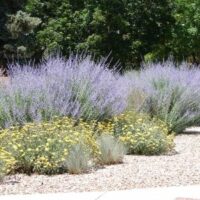HOAs And “Florida-Friendly” Landscaping

If one joins a homeowners’ association (HOA), they should be aware that the HOA has extensive powers to regulate things that might otherwise be up to the individual homeowner. One of the areas in which clashes routinely occur is landscaping – most HOAs have broad leeway to dictate what a homeowner can and cannot plant. However, this does not necessarily apply when dealing with what is known as “Florida-friendly” landscaping. Both association boards and individual homeowners should be aware of what this is, and what state law permits in terms of the right to regulate.
Aesthetics vs Conservation
Florida-friendly landscaping is a form of xeriscaping, which is landscaping specifically designed to reduce water consumption. The concept is a propagation of the University of Florida Institute of Food & Agricultural Sciences (IFAS) and the Florida Department of Environmental Protection (DEP), designed to reduce Florida’s reliance on plants that might use too many resources and pose an ecological problem. In addition, the state legislature declared water conservation to be a compelling state interest.
Initially, many homeowners’ associations were resistant to allow “Florida-friendly” landscaping, as it was too much of a departure from the overall appearance of the association. HOA bylaws will almost always regulate the appearance of its component lots in order to present a uniform aesthetic, and xeriscaping often involves less grass, fewer flowering plants, and a look that might seem drab compared to previous lawn styles. However, the Florida legislature eventually modified its previous regulations around “Florida-friendly” landscaping, increasing homeowners’ ability to design their lots as they see fit.
HOAs Limited By Law
The changes to the Florida-friendly landscaping law came in 2009, and was designed to balance the interests of HOAs versus the compelling state interest in water conservation. The relevant statute explicitly forbids HOAs from “prohibit[ing], or be[ing] enforced to prohibit” any homeowner from implementing Florida-friendly landscaping. However, it does not mandate that all HOAs institute Florida-friendly landscaping (despite its stated importance in terms of water conservation), or that property owners be forced to change their landscaping.
What this means in practical terms for HOA members is that any bylaws or restrictive covenants in their association will not apply. If your HOA attempts to enforce the covenants, you have the right to file suit against them – given the wording of the relevant statute, the compelling state interest will generally be given higher weight than the individual preferences of your HOA board. However, this does not mean that the HOA will have no input whatsoever on how you choose to landscape your yard. Each case is different, and having an attorney on your side is always a good idea.
Contact A Tampa HOA Attorney
In Florida, environmental concerns are becoming more and more pressing as time goes by. However, homeowners’ associations do have the right to oversee their members and how those members keep their homes. If you have clashed with your HOA over your landscaping, contacting a Tampa HOA & condo association attorney may be a good idea. Attorney Alicia Seward and the Seward Law Office are ready to try and assist you. Contact us today to schedule a consultation.
Resources:
edis.ifas.ufl.edu/pdf/EP/EP607/EP607-Dpmpccrtr9.pdf
flsenate.gov/Laws/Statutes/2018/0720.3075
